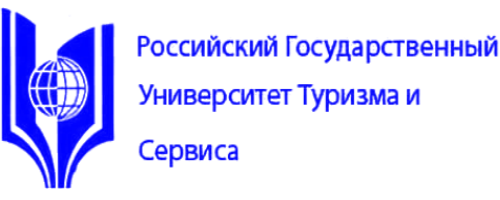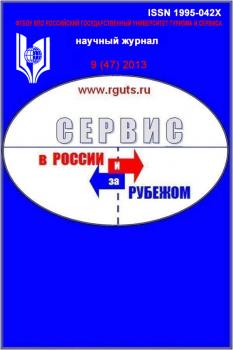It has been established that tourism in our country largely became a type of commercial activity, opportunities to visit other countries have been opened, up-market tourism has been developed, and new forms of leisure entertainment have emerged. System analysis of domestic and foreign scientific literature has shown that the cultural and educational potential of tourism is realized not enough in Russia. Development of appropriate structural and functional model of the implementation of cultural and educational tourism potential is possible through the integration of a number of theoretical and applied experience in the neighboring areas, namely in the history and theory of cultural and entertainment activities and organization of tourism activity. The assumption about the feasibility of functional integration of the two certain systems (cultural and educational, and commercial) is made in the article. This assumption actualizes the problem of determining the specifics of this integration, argues its theoretical basis and identifies functional mechanisms of serviceology. Within the framework of pilot study verification of the structural-functional model of tourism development in three aspects was carried out. The first and second aspects, organizational-managerial, and functional, are connected with decision through the entertainment programs, advertising and PR activities, and cultural and educational events. The third aspect, organizational and educational, consists in integration of cognitive-educational, entertainment and recreational leisure functions.
tourism, politics, culture, service, transformation, recreation, youth
1. Fedulin A.A. Sovremennoe sostoyanie i prioritetnye napravleniya razvitiya turizma i turistskogo obrazovaniya v Rossii. Sovremennye problemy servisa i turizma. 2009. № 4. S. 70-75.
2. Zhilkova Yu.V., Britvina V.V., Sedenkov S.E. Klasternyy podkhod v turizme. Vestnik Akademii detsko-yunosheskogo turizma i kraevedeniya. 2013. № 1. S. 151-154.
3. Kiyakbaeva E.G. Indikatory ustoychivogo razvitiya turizma i ikh ispol´zovanie v federal´nykh programmakh razvitiya turizma v Rossii. Izvestiya Sochinskogo gosudarstvennogo universiteta. 2014. № 1 (29). S. 78-80.
4. Lebedeva O.E. Zarubezhnyy opyt v sisteme turistskogo obrazovaniya. Ekonomicheskaya nauka v 21 veke: voprosy teorii i praktiki. Makhachkala, 2014. S. 37-38.
5. Solomatina T.B., Kolomnikova A.A. Vstuplenie Rossii v period intensivnogo industrial´nogo razvitiya i aktualizatsiya problem obrazovaniya v XIX v.. Gosudarstvo, obshchestvo, obrazovanie v kontekste tsivilizovannogo podkhoda: kollektivnaya monografiya. Cheboksary: Interaktiv plyus, 2015. S. 9-22.
6. Fedulin A.A., Gavrilov A.Yu., Novikova N.G. Sovremennye podkhody k opredeleniyu resursnogo potentsiala turizma . Servis plus. 2012. № 1. S. 38-44.
7. Nasyrova L.A., Makarenko Z.V. Ob usilenii sotsial´noy napravlennosti turistskoy otrasli v Rossiyskoy Federatsii. Gumanitarnye, sotsial´no-ekonomicheskie i obshchestvennye nauki. 2014. № 11. Ch. 2. S. 92-96.
8. Platonova N.A., Vapnyarskaya O.I. Formirovanie kontseptual´nykh i metodologicheskikh osnov servisnogo audita. Servis v Rossii i za rubezhom. 2013. № 7 (45). URL: http://electronic-journal.rguts.ru/index.php?do=cat&;category=2013_7 (data obrashcheniya: 18.03.2016).
9. Dunets A.N. Prostranstvennaya organizatsiya turizma v regione: teoreticheskie osnovy klasternogo podkhoda. Sovremennye problemy servisa i turizma. 2011. № 1. S. 37-44.
10. Bushueva I. V. Upravlenie servisomna urovne regiona: klasternyy podkhod. Servis v Rossii i za rubezhom. 2014. № 8(55). URL: http://electronic-journal.rguts.ru/index.php?do=cat&;category=2014_8 (data obrashcheniya: 21.03.2016).
11. Chikova O.M., Kharitonova T.V. Sotsial´naya napravlennost´ sfery uslug. Servis v Rossii i za rubezhom. 2012. № 10(37). URL: http://electronic-journal.rguts.ru/index.php?do=cat&;category=2012_10 (data obrashcheniya: 15.02.2016).
12. Bezuglova M.S. Kul´turno-poznavatel´nyy turizm v Astrakhanskoy oblasti kak forma ustoychivogo razvitiya turizma. Ekologiya Rossii: na puti k innovatsiyam. 2013. № 8. S. 8-11.
13. Boyko A.E. Formirovanie turistskikh klasterov kak instrument razvitiya vnutrennego turizma v Rossii. Vlast´ i upravlenie na Vostoke Rossii. 2009. №2(47). S. 224-228.
14. Sedel´nikova I.V. Promyshlennyy turizm kak perspektivnyy vid razvitiya turizma v Rossii. Trudy XII Mezhdunarodnoy nauch.-prakt. konf. studentov, aspirantov i molodykh uchenykh. Tomsk: Natsional´nyy issledovatel´skiy Tomskiy politekhnicheskiy universitet, 2013. S. 77-78.
15. Sorokina N.A. Korporativnyy turizm kak vid delovogo turizma. Vestnik Rossiyskoy akademii estestvennykh nauk. 2013. № 17(2). S. 95-97.





